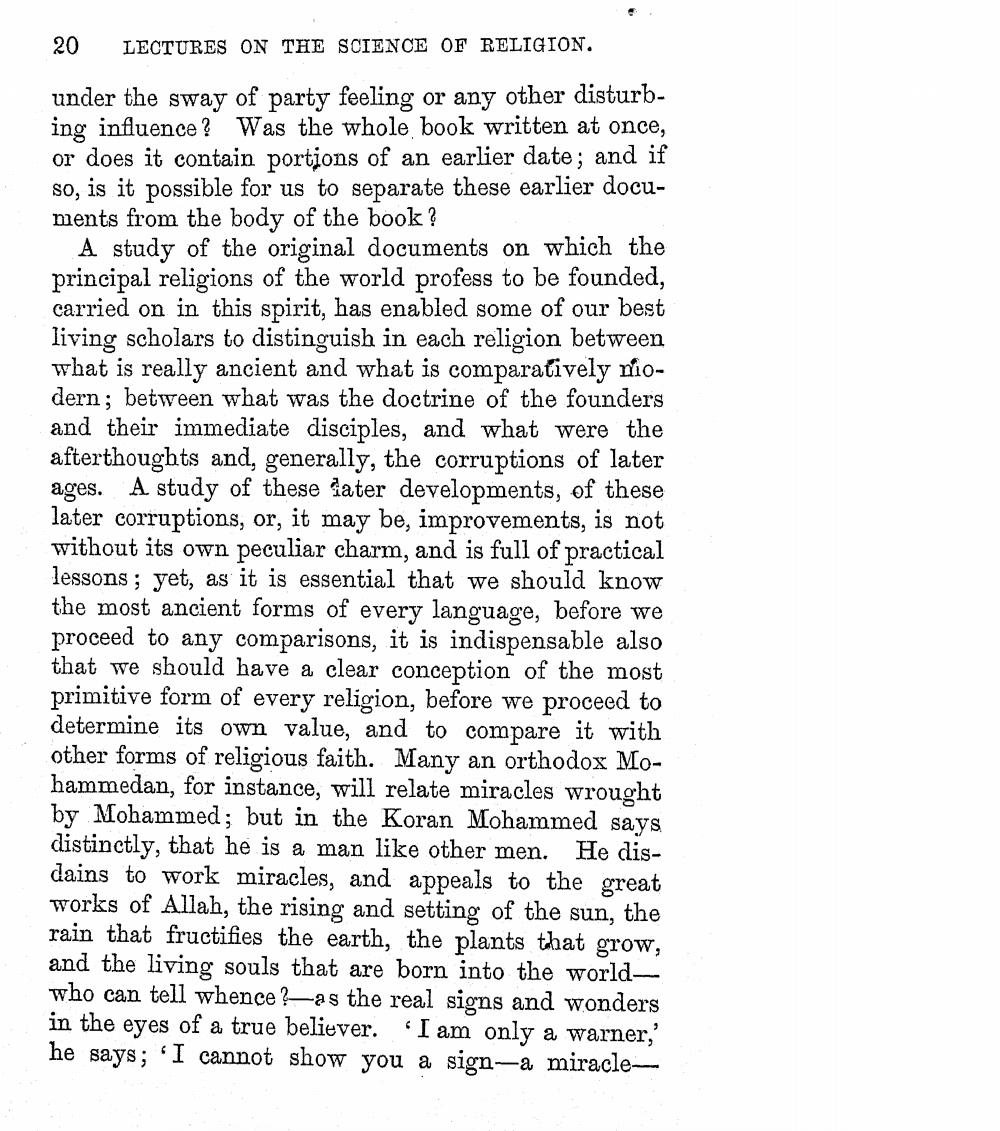________________
20 LECTURES ON THE SCIENCE OF RELIGION.
under the sway of party feeling or any other disturbing influence? Was the whole book written at once, or does it contain portions of an earlier date; and if so, is it possible for us to separate these earlier documents from the body of the book?
A study of the original documents on which the principal religions of the world profess to be founded, carried on in this spirit, has enabled some of our best living scholars to distinguish in each religion between what is really ancient and what is comparatively miodern; between what was the doctrine of the founders and their immediate disciples, and what were the afterthoughts and, generally, the corruptions of later ages. A study of these later developments, of these later corruptions, or, it may be, improvements, is not without its own peculiar charm, and is full of practical lessons; yet, as it is essential that we should know the most ancient forms of every language, before we proceed to any comparisons, it is indispensable also that we should have a clear conception of the most primitive form of every religion, before we proceed to determine its own value, and to compare it with other forms of religious faith. Many an orthodox Mohammedan, for instance, will relate miracles wrought by Mohammed; but in the Koran Mohammed says distinctly, that he is a man like other men. He disdains to work miracles, and appeals to the great works of Allah, the rising and setting of the sun, the rain that fructifies the earth, the plants that grow, and the living souls that are born into the worldwho can tell whence?-as the real signs and wonders in the eyes of a true believer. I am only a warner, he says; 'I cannot show you a sign-a miracle




